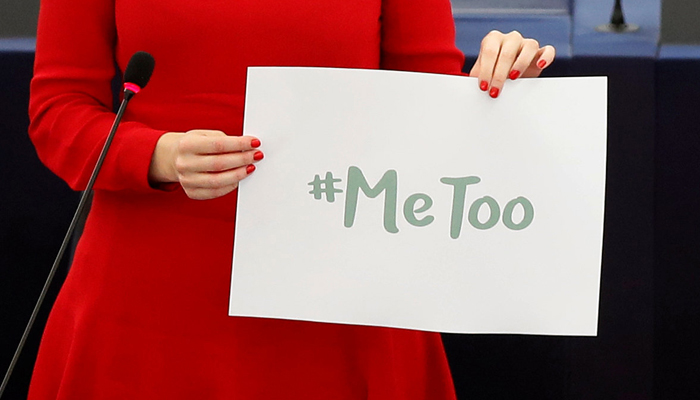#MeToo in South Asia: Reporting sex pests
However, activists dismissed the change, saying a portal would not stamp out sexism at work
November 11, 2017

Following the global efforts to crack down on sexual harassment and misconduct, South Asia has also started to emerge as a major region where such incidents are common.
In this regard, India is reaching out to women in the private sector, urging them to report sex pests via an online portal previously restricted to government staff.
However, activists dismissed the change, saying a portal would not stamp out sexism at work — be it the lewd comments, stalled promotions or unwanted advances that women routinely face.
“Most offices do not even have a committee to look into sexual harassment, as mandated by law. So who will follow up on these complaints?” said Flavia Agnes — a co-founder of Mumbai-based women’s rights organization Majlis.
Uphill climb
Brazil’s Sao Paulo and New Delhi — India’s capital — were paired as the world’s worst megacities for sexual violence against women in a poll published last month by the Thomson Reuters Foundation.
Unsafe workplaces keep educated women out of the labour force in India, where nearly two-thirds of women with college degrees are without jobs, leading to among the worst rates of female labour force participation in the world.
In 2013, the country passed a law to tackle sexual harassment of women at the workplace. Employers were required to set up grievance councils to investigate all complaints.
But equal treatment for women in the home, as well as the workforce is an uphill climb.
SHe-box
Since the launch of sexual harassment e-box (SHe-box) — a tool to register complaints of sexual harassment at work — in India, in July this year, nearly 350 complaints have been recorded, according to a statement by Maneka Gandhi — the minister for women and child development — released on Tuesday.
When a complaint is submitted, it is sent to the employer’s internal complaints committee. The ministry, as well as the complainant, can monitor the progress of the inquiry.
Complaints can range from lewd jokes and intimidation to denial of promotion after a spurned advance, Gandhi explained. The online portal will now be available to women in private companies, too.
“This is a proactive step taken by (the ministry) in the wake of the worldwide social media campaign #MeToo,” she stated. “The government is completely committed to [providing] a safe and fair environment to working women,” she added.
Politics, entertainment, fashion
Tens of thousands of women across the world recounted tales of sexual harassment or assault with the hashtag #metoo on social media last month, in the wake of claims against movie producer Harvey Weinstein.
The New York Times and The New Yorker published articles on allegations that the Hollywood mogul had a decades-long history of sexual harassment and rape, prompting scores more women to speak out about his behaviour and that of others in the same industry.
Allegations have since emerged against House of Cards star Kevin Spacey, director James Toback, comedian Louis C.K., and others.
The scandal soon leached to other sectors — be it Britain’s parliament, the global fashion industry or the film sector.
Implement the law
Nevertheless, activists in India said simply registering a complaint will not curb sexual harassment at work.
“The focus should be on implementing the 2013 law and improving the workplace environment for women, rather than setting up more avenues to complain,” she told the Thomson Reuters Foundation.











